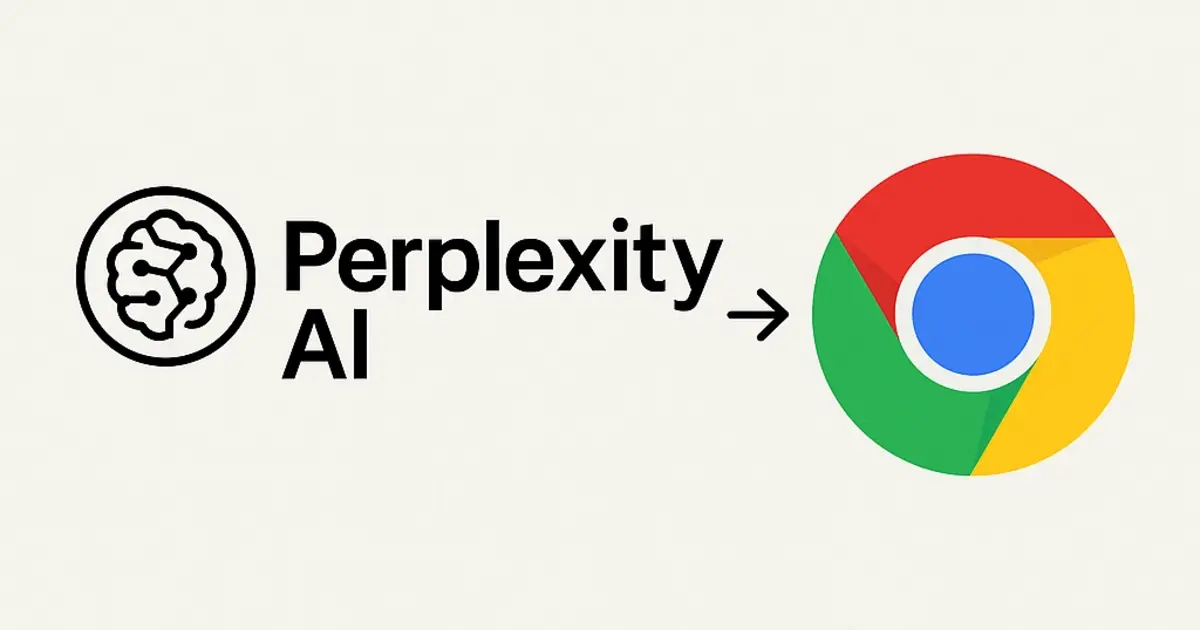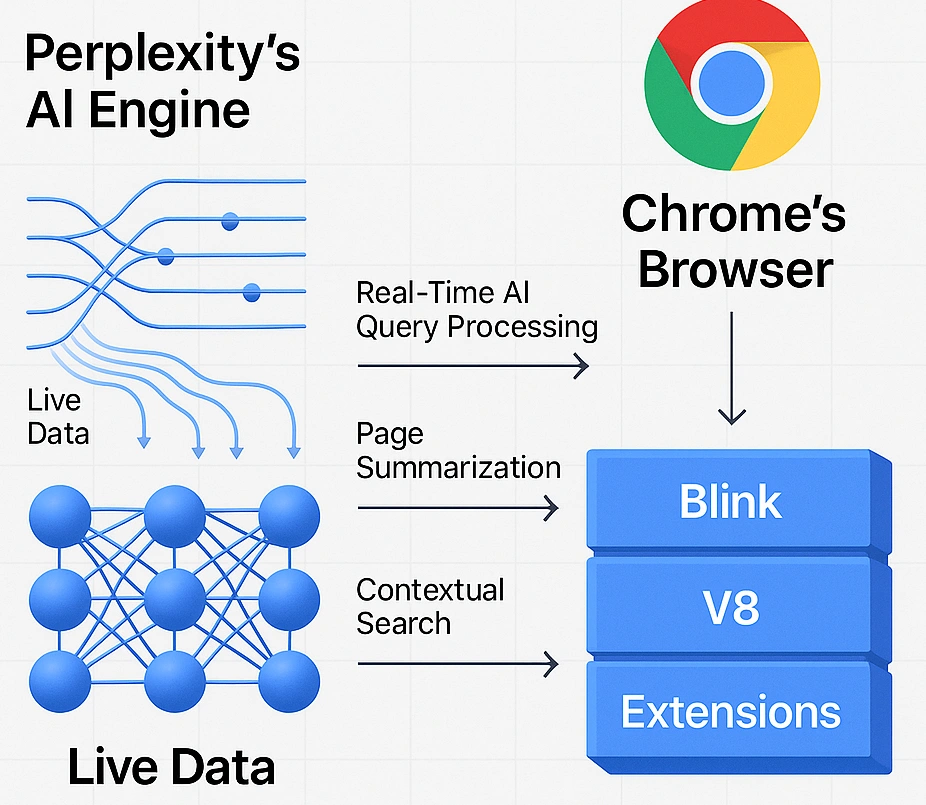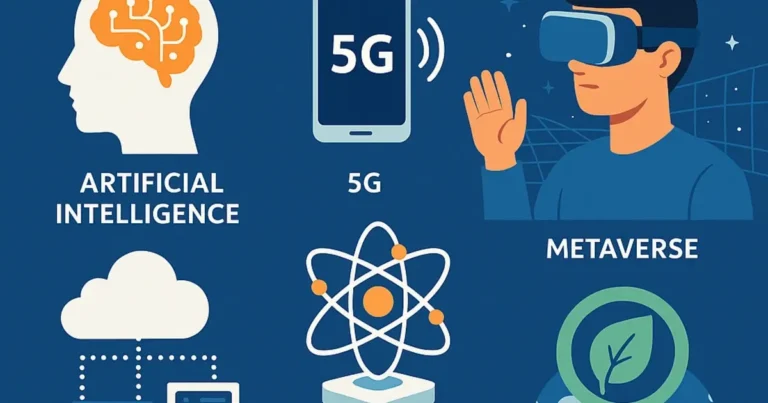
Perplexity AI Google Chrome has become a hot topic in the technology sector after Perplexity AI, a leading AI-driven search engine company, submitted a $34.5 billion cash offer to acquire Google Chrome.
The bid, which is more than double Perplexity’s own market valuation, is drawing attention from industry experts, regulators, and technology analysts.
In this article, we examine the technology behind Perplexity AI, its existing AI browser framework, the role of the Comet browser, and the potential implications of this acquisition on the web browser industry. Our analysis draws from credible sources, including Reuters, NDTV, TechCrunch, and Perplexity’s own technical documentation.
Understanding Perplexity AI’s Position in the Market

Perplexity AI was founded in 2022 to provide an answer engine rather than a traditional search engine. It uses large language models combined with real-time web search to deliver concise, cited answers.
From a technical perspective:
- It leverages semantic search algorithms to interpret natural language queries.
- It integrates live indexing to ensure answers reflect current web data.
- It emphasizes source transparency, displaying citations alongside responses.
This approach has helped Perplexity grow rapidly, attracting backing from prominent investors such as Jeff Bezos and Nvidia. By mid-2025, the company was processing nearly 1 billion user queries per month (Source: Reuters, August 2025).
The Comet Browser: A Working Model of an AI-Integrated Web Experience
Before its acquisition bid, Perplexity launched the Comet browser in mid-2025, built on the open-source Chromium framework. The browser functions as a proof of concept for AI-native browsing:
Key Features of Comet Browser:
- Real-Time Page Summarization: Automatically condenses long articles or documents.
- Contextual Memory: Maintains query history across tabs and sessions.
- Task Automation: Can assist with bookings, form completion, and structured research.
- Low-Latency AI Calls: Optimized backend servers reduce response delay.
Comet’s design demonstrates how Perplexity could integrate its AI systems into Chrome, providing a smooth, AI-enhanced browsing experience without compromising speed or stability.
Why Chrome’s Infrastructure is Critical
Perplexity AI Google Chrome’s infrastructure offers a unique combination of reach and technical maturity:
- Over 3 billion active users worldwide (Source: StatCounter).
- Robust extension APIs allowing scalable AI feature deployment.
- Blink rendering engine optimized for speed and compatibility.
By acquiring Chrome, Perplexity could instantly scale its AI technology to a massive global audience, effectively reshaping how billions of people interact with the web.y.
Industry and Regulatory Considerations
While the technical potential is significant, there are also serious challenges:
- Regulatory Approval: Google is currently facing antitrust scrutiny in the United States. A federal judge is reviewing potential remedies, including the forced divestiture of Chrome (Source: NDTV).
- Privacy and Compliance: AI processing at the browser level requires strict data governance to comply with GDPR, CCPA, and other international privacy laws.
- Performance Optimization: AI features must be integrated without increasing memory usage or slowing page rendering.
Technology analysts suggest that even if the acquisition is not finalized, Perplexity’s bid has already positioned it as a leading contender in the AI browser space (Source: TechCrunch, August 2025). The major browsers, like Microsoft Edge, Safari, and Firefox, to accelerating their own AI strategies, sparking a competitive wave of innovation in the browser market.
FAQs
Perplexity AI is an AI-powered search engine that uses real-time data and large language models to deliver direct, cited answers instead of traditional search results.
An AI browser embeds AI capabilities into the browsing process, enabling real-time content summarization, contextual search, and task automation directly inside the browser interface.
Comet is Perplexity’s proof of concept for AI-native browsing. It demonstrates how AI can be seamlessly integrated into a Chromium-based browser to enhance user productivity and online research.
An AI browser is a web browser with artificial intelligence embedded into its core, allowing real-time page summarization, context retention, and task automation.





